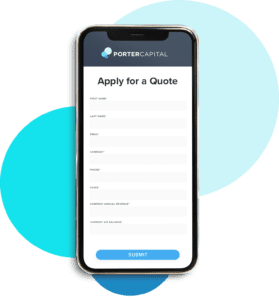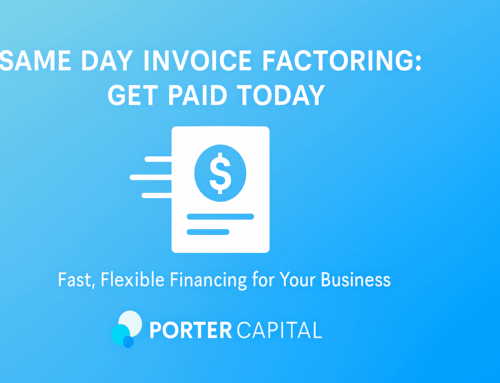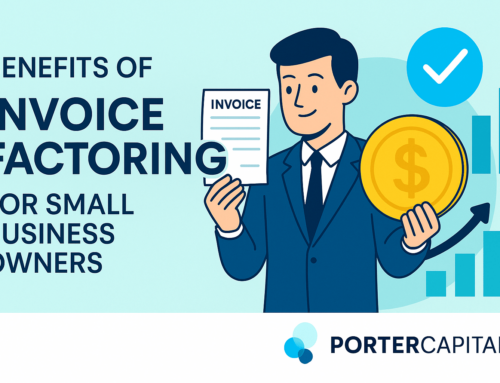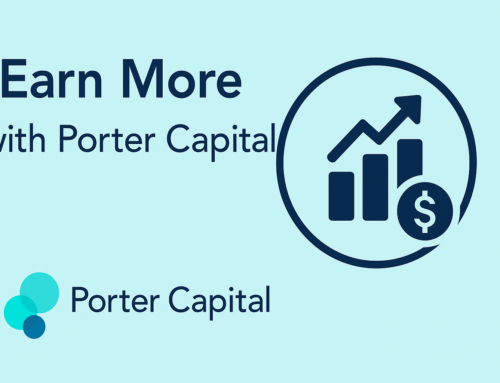It’s safe to say that one of the biggest challenges of businesses — big or small — is having to wait for customers to pay their invoices. With that, you may make lots of collection calls, but to be honest, there is a much better way to handle this issue. Managing cash flow and getting access to working capital can be difficult when a business is unprepared. Invoice factoring, however, is the perfect solution to help grow a business.
In this invoice factoring guide, we will answer all your questions and help you determine if factoring is the right choice for your business.
What Is Invoice Factoring?
Invoice factoring — also known as accounts receivable factoring or spot factoring — is the process of selling some or all your business’s outstanding invoices to a third party to improve cash flow and revenue stability. It has become a common way for many businesses, especially those companies wanting to avoid waiting days, weeks, or even months to receive payments against the invoices they generated.
What factoring gives you in exchange is a cash advance, helping you get money quicker than you normally would from other sources. This is an excellent solution for businesses across multiple industries that cannot wait for customers to pay the invoice and need immediate cash flow to support their growth.
What does a factoring company do?
Invoice factoring companies provide businesses with advance payments and immediate access to the working capital needed to hit payroll, purchase more inventory, or just continue expanding operations without giving up equity. The invoice factoring company advances you up to 95% of your invoices’ cash amount, so you don’t need to wait for your customers to pay.
You can choose from any number of factoring companies and follow the simple factoring process. All you need to do is submit your invoices to the factoring company, wait for them to verify each unpaid invoice, and receive compensation for the invoice value.
Instead of waiting 30 to 90 days for a customer to pay, the factoring company pays you in as little as 24 hours. Then, once the customer payment for the invoice is received, you get the rest of the amount minus the factoring fee.
How Does Invoice Factoring Work?
Overall, the invoice factoring process is simple and provides smooth access to your working capital. The flow of predictable cash flow you receive through factoring your accounts receivables allows you to fund future growth, expand your business opportunities, or just stay on top of expenses for a low-hassle business structure.
Below is everything you need to know about how the factoring process works.
Stakeholders involved in factoring
There are a few stakeholders involved in the factoring process. These include:
- Your Business (or the seller)
- Your Business’s Customer (or the debtor)
- The Factoring Company
Steps in the invoice factoring process
To understand more about the process, you should know the five basic steps involved, which are as follows:
- Your business provides a service or sells a product to a specific customer.
- Your business sends the customer an invoice and also submits it to the factoring company.
- The factoring company provides a cash advance of up to 95% of the invoice to your business.
- The customer will then send the outstanding invoice payment directly to the factoring company.
- The remaining amount of the invoice (typically 5% to 10%) is sent to your business minus the fee paid to the factoring company.
The invoice factoring process can be a tremendous boost to your cash flow. Another advantage of considering such a process is that your factor will assume, manage, and collect your financed debts on your behalf.
Invoice factoring example
| Invoice Amount | $500,000 |
|---|---|
| The fee paid to the factoring company (ex: 2%) | $10,000 |
| Cash Advance (ex: 95%) | $450,000 |
| Remaining Funds (after the invoice is paid) | $40,000 |
| Total Funded | $490,000 |
Invoice Factoring Pros & Cons
Factoring comes with several advantages for your business. However, there are also some considerations to think about depending on your business. Here are the pros and cons of choosing to use invoice factoring.
Advantages of factoring
- Improved cash flow with quick access to funds
- Quicker and easier to qualify than traditional loan
- Promotes a better credit score
- Ability to fund company growth
Disadvantages of factoring
- Hidden costs and fees from dishonest factoring companies
How Do Companies Qualify for Invoice Factoring?
Once you’re approved and your account is ready with the factoring company, you can start factoring your invoices. You simply submit your business invoices to the factor, and they advance you up to 95% of the cash total, minus the factoring fee, to your allocated bank account. The factor holds a portion of the invoice total in a reserve account. The actor then advances you the remaining amount on they collect payment from the customer.
Overall, getting started with an invoice factoring company is hassle-free and efficient. Getting approved is quick and easy, and you get instant access to your working capital. The consistent cash flow you receive through invoice factoring provides you with funding for your business’s future growth plans, expansion opportunities, or simply keeping your business structure flowing.
Common Mistakes When Using Invoice Factoring
Although factoring isn’t complex on the surface, first-time clients might make several typical errors that cause their findings to be delayed. Here are five specific problems you may encounter:
Customers with a low credit score
A factoring company will assess each of your clients based on their credit scores. This is a time-consuming, paperwork-intensive procedure for you, and depending on the financial condition of your client base, it may not provide the relief you expect. If your invoice factor refuses to factor the bulk of your clients, this is an invoice factoring issue outside your company’s control. Suppose the factoring business rejects a significant number of your customers. In that case, it might exacerbate your financial situation owing to both the time lost and the rate that the factor charges you on the rest of your customer receivables.
Using invoice factoring for undeliverables
When you opt to sell your bills to an invoice factoring company, it is critical that you only send the company finished or delivered invoices. A factoring company will go through and check each invoice you want to factor in to ensure that it has been discontinued or delivered. You will not be able to obtain an advance until you have a fully completed invoice.
Using factoring services for long-term contracts
A contract differs from an invoice. Many invoice factoring businesses will not advance your money if you have outstanding or ongoing contracts. A purchase order or agreement billed a month in advance cannot be included in recurring billing.
Not reading the fine print of your factoring agreement
It is critical to read it thoroughly. If you are unfamiliar with legal contracts, they may appear perplexing. The terms of the factoring agreement should match the conditions of the proposal you received. Still, there are often fee penalties or other forms of contingency costs for occurrences not included in the proposal. You must take the time to understand the fees you will be required to pay and how they are computed, which is detailed in the factoring agreement.
Not letting your customers know you are working with a factoring company
Informing your clients that you work with a third-party collector prevents them from being surprised when we approach them. Failure to inform your clients that you are dealing with a third party may cause them to disregard communication from your factoring agency, extending the time it takes for your invoice to be paid.
How to Choose an Invoice Factoring Company
Before you choose which invoice factoring company to partner with, there are a few considerations you need to take into account. Below are the common things to research when looking for the right factoring company.
Services offerings
There are two types of common factoring services that you need to consider. These include:
- Recourse: In a recourse factoring agreement, your business is responsible for a situation where the customer doesn’t pay on time or at all. A recourse factoring fee is slightly lower.
- Non-recourse: A non-recourse factoring contractual agreement will protect you from customers that don’t pay on time or at all.
Industries served
Typically, small businesses and startups find the most value when using invoice factoring to fund their business cash flow. Here are some of the common industries that benefit from factoring:
- Staffing
- Manufacturing
- Distribution
- Service companies
- Oil and gas
- Transportation and freight
- Technology
Factoring Agreement structure and contract
There are a few common fees and terms that you can expect to pay when partnering with a factoring company. Here are the main factors that influence your factoring rate:
- How much will you need to borrow
- Your customer’s credit history
- The number of invoices and length of time outstanding
For more information on invoicing contracts and terms, check out our article on understanding invoice factoring contracts.
Hidden Fees
When researching factoring companies to work with, you should watch out for the following hidden fees.
- Minimum monthly fees
- Maintenance fees
- Early termination fees
How to Tell if Invoice Factoring is Right for Your Business
Invoice factoring can be useful and beneficial to small businesses for various reasons and situations. Most business owners face the dilemma of waiting for their clients to pay them their balance. It takes a tremendous amount of determination and effort to plan around an erratic cash flow due to slow, unpredictable client payments. Factoring eliminates the need to wait and plan around your customer’s payments by ensuring a reliable cash flow.
If your business needs to meet customer demands
Another good scenario where invoice factoring is useful is in expanding your inventory to cater to more customers. Again, this requires a significant amount of funding to pull off, which can be challenging for any business that’s just starting out. If the demand for your product is increasing and you want to double down and meet that demand, you’ll need the help of a factoring company to give you the funding you need. Working with an invoice factoring service can produce immediate cash flow to allow you to expand your business and meet the demand.
If your business is taking on larger projects
Having very little capital to work with can limit your ability to take on those huge orders, which can be just the break you need to turn your business into a profitable venture. Without enough working capital, you’ll be stuck working on small projects with minimal payoff.
If your business needs funding immediately
Invoice factoring provides you with fast access to your working capital to stay on top of your business finances and solve your cash flow problem. If you want to purchase more inventory, hire more employees, or expand your business, factoring your invoices is the right decision.
If your business needs to compensate for seasonality
It’s inevitable for businesses to experience a lack of income stream during low seasons when the customers may not be interested in buying. These businesses will need a steady cash flow to keep their production going throughout the months. Anything less can cause them to run out of funds, ruining their business.
If your business needs to improve its credit
If you have a good credit rating, you can use it to pay for more expensive things. When you can pay your bills on time, you can bring down your expenses. This will help you improve your business credit and lower your expenses in the long run.
If your business doesn’t have the manpower to collect invoices
You don’t need to hire additional employees just to handle debt collection. With invoice financing, you’ll get to focus on what matters in your business and grow it so you can take your business to the next level.
Invoice factoring compared to other forms of funding
There are several different types of funding that you can choose from, but not all of them will be the right fit for your business. Here are the differences between other forms of funding and invoice factoring.
Invoice factoring vs. traditional bank loan
The main difference between factoring and a traditional bank loan is the debt that you will pay over time. With a bank loan, you will need to pay back interest. However, with factoring, you will not acquire any additional debt. If you want to learn more about the difference between the two options, check out our article on Invoice Factoring vs. Bank Loans.
Invoice factoring vs. invoice discounting
The biggest difference between invoice factoring and discounting is who actually collects the outstanding payment from the customer. With invoice discounting, the customer pays your business as normal rather than paying the factoring company directly.
Invoice factoring vs. purchase order financing
There is sometimes confusion around invoice factoring and purchase order financing. While they may seem similar, they are actually quite different. Purchase order financing is common for businesses that are looking for funds to purchase the necessary materials to complete a project. On the flip side, invoice factoring is used by companies to fulfill gaps in their business’s cash flow by receiving upfront payment for outstanding invoices.
Ready to Start Invoice Factoring?
If you want to invest in your business while improving your cash flow, invoice financing is one of the best ways to go. With that said, it’s worth working with financial institutes that offer invoice finance services to help you get a hold of your business’s cash flow.
If your business needs invoice factoring, contact us online today to start the process.






